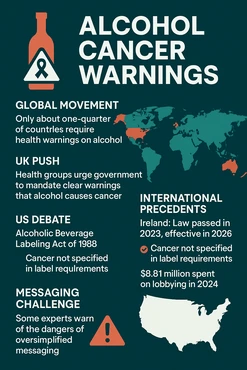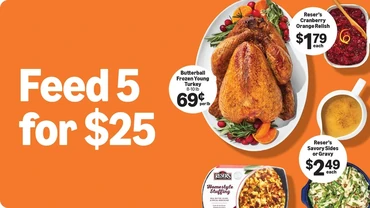Turn yesterdays tech into todays money
November 7, 2025
-
Prep the device first (backup, sign out, reset, clean, gather accessories) so you dont get lowballed on condition
-
Pick the payout type you want: store credit/e-gift (Best Buy, Amazon, Costco), bill credits tied to a new phone (carriers), or real cash (buyback sites or private sale)
-
Private sale almost always pays the most, but it takes the most effort and you have to protect yourself (public meetups, show IMEI clean, remove locks)
Do you have a couple old phones or a sad little iPad shoved in your junk drawer? It might be time to pull them out and make some money off them. Ill walk you through 6 reliable options that will help you do just that. Plus, I'll give yousome pros and cons with each so you can decide for yourself what's the best way to cash in on your old tech.
First: a 5-minute prep that boosts potential value
- Back up + sign out of iCloud/Google/Find My. Also turn off any activation locks.
- Factory reset the device and remove the SIM/eSIM card (if it has one).
- Gather all accessories like the original charger, cable, box, manual, etc.
- Check the battery health and screen condition so you describe it accurately.
- Clean it up. Smudges and crumbs can often look like damage to graders.
Best Buy trade-in
Best for:The Best Buy Trade-In program is a solid option for selling old cell phones, tablets, headphones, gaming consoles, computers, and some wearables.
How it works: Start by visiting their Trade-In page and do a quick search for the device you want to trade-in. Then select your exact device and answer the condition questions. Theyll immediately give you an estimated trade-in value which you can accept on the spot.
If you accept the offer, you can either ship-it or take it to any Best Buy location. Once they verify the condition, theyll issue you a Best Buy gift card for the agreed upon amount.
My example: I have an old iPhone 14 (128GB) with Verizon, in "Good" condition, and Best Buy will give me $100 for it.
Pros: Fast turnaround, in-store convenience, easy way to use the gift card to lower the price of a new purchase.
Cons: Gift card only, and mid-tier trade-in prices compared toAmazon Trade-In or a private sale.
Pro tips:
- You must do a factory reset of your device and disable the Find My feature otherwise it will have a $0 trade-in value.
- Do your trade-in at a Best Buy store if you can. Being able to interact and talk to the person evaluating your device gives you immediate feedback about the condition and lets you explain any issues.
- While youre there, ask about any open-box deals and try to stack your trade-in credit with an open-box discount to maximize your savings.
- Always bring the original charger if you can as a missing power brick can knock off some value.
Amazon trade-in
Best for: Echo/Kindle/Fire devices, controllers, smartphones and accessories.
How it works: Select your device on the Amazon Trade-In page and get an immediate online quote after answering some condition questions. If you accept the quote, theyll give you a free shipping label and you mail it off.
Once they verify the condition, theyll pay you with an Amazon gift card. Some items qualify for an instant payment before you ship the items back which is a cool feature. Plus, sometimes theyll give you a promotional discount that you can use to buy a new qualifying Amazon device.
My example:Amazon will give me $180 for my old iPhone 14 (128GB) - a very surprising $80 more than Best Buy.
Pros: Very easy process, solid payout prices, especially for Amazon devices, and they also have frequent promo bonuses.
Cons: Limited device list; gift card only; mail-in only; condition grading can be strict. Processing can take up to 15 days.
Pro tips:
- Stack your promos. Amazon periodically adds a bonus (e.g., extra 1020% on eligible categories).
- Time your trade with Prime events like Prime Day or Black Friday. By doing so, your values and bonuses are known to be a little higher.
- Screenshot your condition answers before shipping. That way if you get re-quoted after they inspect the item, you can appeal with specifics.
Costco trade-in (via partner portal)
Costcos device trade-in program is basically Costco, but outsourced. You dont hand your old iPhone to the lady at the membership desk, instead everything runs through Phobio, Costcos partner company.
How it works: Visit this page and click the Start Your Trade-In Now button. Youll be routed to a partner site (Phobio), youll answer some condition questions, then get an instant price quote.
If you accept the quote, Phobio will give you a prepaid shipping label along with packing instructions. Once they receive the device and inspect it, theyll pay you via a Costco Shop Card. Expect it to take 3-5 business days.
Ive found values to be surprisingly high on newer Apple and current-gen phones. Your actual offer is going to depend largely on age, storage, carrier, and overall condition.
My example:Costco will give me $165for myold iPhone 14 (128GB) - a solid 2nd place behind Amazon at $180.
Pros: Smooth process via a trustworthy partner network. Surprisingly, you dont have to be a Costco member to use Phobio. You can simply spend the Costco Cash Card (in-store or online) without a membership which is a nice perk.
Cons: They can lowball after inspection. Payout is locked to Costco. Mail-in only option has been known to be a little on the slow side.
Pro tips:
- Compare the Phobio quote to Amazon and Best Buy before you commit.
- Lock your quote (most portals hold it for a set window, be sure to ship your device quickly).
- Use insured shipping and photograph the device powered on and boxed up.
Carrier trade-ins (Verizon, AT&T, T-Mobile)
Best for: When youre already upgrading and want the biggest trade-in value possible on a new smartphone. But keep in mind that the trade-in number only exists because youre doing the upgrade through them and letting them pay it out as monthly credits.
How it works: You trade in your old phone, and instead of getting cash, the carrier spreads the value out as monthly bill credits over 2436 months tied to your new device payment.
Pros: The promos are definitely impressive. Up to $800 off with eligible trade is real if youre on the right plan, with the right phone, in the right condition.
Cons: Its not money in your hand, its credits on your bill.And those credits can stop if you pay off early, downgrade, or switch carriers. So youre basically agreeing to stay put.
Pro tips:
- Read the promo details carefully as the exact model, storage, and condition tiers will definitely change your payout.
- Screenshot the offer the day you order so you have proof if the credits dont show up on your next bill.
- If you think you might switch carriers in the next 1218 months, dont do it. Youd be better off selling the phone for cash and keeping your flexibility.
Independent buyback sites
Best for: Getting actual money (not store credit) without meeting some rando in a parking lot.
How it works: Start at a reputable buyback site like Gazelle, ItsWorthMore, or GadgetPickup. You select your exact device, answer some condition questions, and they give you an instant quote.
Depending on the service you pick, youll get paid via PayPal, Venmo, Zelle, or a bank transfer.
My example:I ran myold iPhone 14 (128GB) through ItsWorthMore and they'll only give me $107, not great. Gazelle was much better at $181.
Pros: Real cash instead of store credit or bill credits. Fairly fast payout, most pay within a couple of days of them receiving it.
Cons: Grading can be strict and theyve been known to be pretty picky. Also, quotes can drop if condition isnt exactly as described.
Pro tips:
- Get 23 quotes on the same day (if possible) asprices move around a lot and different sites tend to favor different models.
- Be honest about flaws (things like small crack, scuffs, after-market screen). Being honest will help prevent a lower re-quote.
- Document everything: write down the IMEI, take front/back/powered-on photos before shipping the device. Then if they say screen damage, you have proof.
Private sale (when you want the most cash)
Best for: People who want to make the most money from their devices and have some time to make it happen. While not a trade-in, it routinely beats every option above in terms of what you can make.
I recommend using Swappa, eBay, Facebook Marketplace, or a local buy/sell groupto find interested buyers foryour device.
My example:Looking at recently completed sales on eBay, my old iPhone 14 (128GB) currently sells for about $240. $60 more than what Amazon would give me.
Pros: Highest payout, especially for unlocked, recent, pristine devices.
Cons: The time required to schedule a meet-up is the biggest negative for most people. You also have the potential for flakes and scam artists.
Pro tips:
- Set your price based off of sold and completed listings. Meaning if the last three sold for $320, list yours at $340 and be willing to take$320.
- Meet somewhere public like a carrier store, grocery store parking lot, or even at the police station. Public spots means more cameras and fewer weirdos.
- Have them pay in front of you by asking for cash or instant Zelle/Venmo payment that you see and track.
- I recommend showing the buyer that the IMEI is clear and remove any iCloud/Google/Samsung locks on the spot so they know its legit.



























